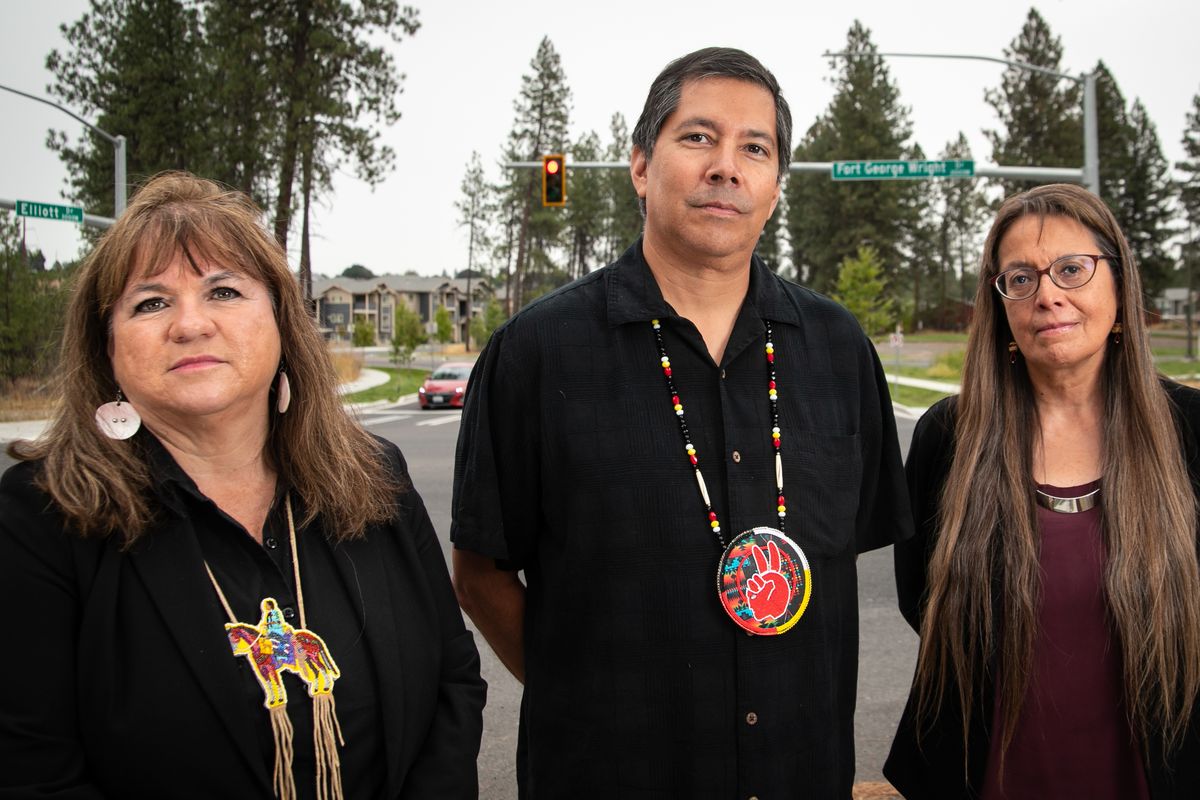Fort George Wright Drive renamed

Fort George Wright Drive is now Whistalks Way.
The name change, an acknowledgment of the brutality imposed on Native American tribes in Spokane by Col. George Wright and the United States government, was approved unanimously by the Spokane City Council on Monday.
“The Spokane Tribe worked very hard to involve tribal elders and the tribes that were directly affected by the acts of Col. George Wright,” said Margo Hill, a member of the Spokane Tribe of Indians and proponent of the new name.
Wright led a violent campaign against Indigenous people to suppress their resistance as white settlers spread across the land of the Yakama, Palouse, Coeur d’Alene and Spokane tribes in the mid-19th century.
The road will be named Whistalks Way in honor of Whist-alks, a woman warrior and Spokane Indian who played a role in the resistance against Wright in 1858.
“Our tribal members have worked hard to provide a good name and we have nurses and doctors and lawyers and Indigenous women across this city that were working hard to serve this city, so we are proud of the name Whistalks Way,” Hill said.
Whist-alks, whose name means “walks in a dress,” was the wife of Qualchan, a Yakama sub-chief. She unsuccessfully attempted to free her husband from Wright’s captivity before his hanging and ultimately fled the area, according to a historical account prepared by the Spokane Tribe for the city’s Plan Commission in November, which cites oral and written histories.
In an oral history passed down several generations and relayed in a document provided to the Plan Commission, Spokane tribal elder Jim Sijohn recalled “Our warriors went up against rifles and cannons. They ended up fighting with bare hands, but they fought to protect their families. At Hangman Creek, the soldiers lined up. This Col. Wright walked through and pointed at the Indians. They made them line up … brothers and sisters, and point ‘you and you’ selecting the Indians to be killed.”
Spokane historian Don Cutler wrote on HistoryNet.com that, “sparked by a need to show force and strengthen or create treaties, Wright’s advance devolved into a bloody and vindictive march featuring hangings, burned villages, lies and coercion and the slaughter of nearly 700 Indian horses.”
The effort to rename the street has been spearheaded on the council by members Betsy Wilkerson and Karen Stratton, whose mother was a member of the Spokane Tribe. It was endorsed unanimously by the Plan Commission in November.
“It’s time to change the name, it’s time to honor the past and honor tribal members who fought,” said Stratton.
Stratton lamented only that the process was not initially more inclusive of more perspectives, an inadequacy noted Monday night by multiple members of Native American Alliance for Policy and Action.
A mile long, Fort George Wright Drive cuts along the Spokane Falls Community College campus in Northwest Spokane.
Campaigns to change the street’s name date back at least to 1993 but have stalled until this year. The effort picked up steam again in 2020 amid protests for racial justice following the death of George Floyd.
The majority of public comments submitted to the city ahead of Monday’s vote were supportive, but the change was not without opponents.
Thomas Cooney, a member of Westerners Spokane Corral, a history club, wrote to the Plan Commission in advance of its November meeting.
He argued Whistalks Way “makes reference to a little known person, whose name is not easily pronounced.” Cooney defended Wright as a man following the orders of the U.S. Army and argued that he should be “judged by the standards in practice during his lifetime.”